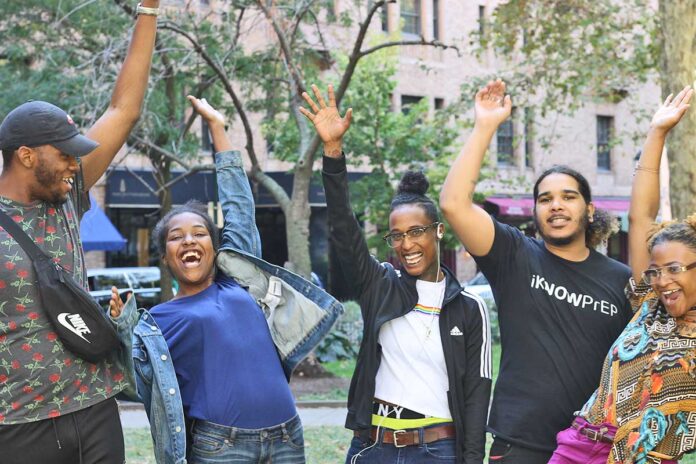In March 2020, Valley Youth House and the Homeward Initiative were about to launch their collaborative program Host Homes, where youth experiencing homelessness would stay with host families temporarily to help them transition to more stable housing. However, the onset of the pandemic stopped that plan, and the program hasn’t since gotten the host uptake to make it run in full force. Since March 2020, Host Homes has had only three host families and four youth placed. But the organization is still persevering.
This year, Valley Youth House Pride program team is working to roll out a new model for Host Homes. They plan to offer a $700 monthly stipend for prospective hosts and consult the agency Point Source Youth, which helps launch programs of a similar nature. The Pride program team has also been developing a similar temporary housing model called Pride Respite, which is based on the input of youth who have experienced homelessness.
“Youth have been informed that there’s a lack of safety net for them when they become homeless,” said ZC, Pride Program supervisor at Valley Youth House. “They do not feel safe in shelters.”
In working with city shelters, ZC discovered that one city-run shelter entity used to have a men’s shelter with a separate trans-centered unit, but they eliminated it, according to a whistleblower at the time.
“I talked to the city, I talked to the shelter, I talked to all of them about the need for this,” ZC said. “Weirdly, one of the things that the city does, that a lot of folks in housing here in Philly do, is they kind of say it’s reverse discrimination to prioritize queer or trans people.”
Here enters Pride Respite, a program in the works where queer and trans youth reluctant to use shelters are temporarily placed in either a three-bedroom house or a two-bedroom apartment for three to six months.
Amid Philadelphia’s current housing landscape in which almost everyone has struggled to find affordable housing, ZC said they have seen an increase in trans youth seeking Pride’s services.
According to a recent survey by Chapin Hall at the University of Chicago, “Missed Opportunities: LGBTQ Youth Homelessness in America,” the second in the “Voices of Youth Count” series, LGBTQ youth are at more than twice the risk of experiencing homelessness compared to their cishet peers; additionally, youth who identify as LGBTQ and Black or multiracial are among the groups that experience homelessness at the highest rates; of all youth who have experienced homelessness, LGBTQ youth reported higher frequencies of trauma and adversity; and trans youth frequently experience unique and more severe kinds of discrimination and trauma.
In response to the negative experiences that trans youth have had in shelters, ZC and the Pride team also created the Trans Youth Fellowship. It will provide trans and gender nonconforming youth, focusing on Black trans women, an opportunity to share their experience, knowledge and insight to create a guide for making City housing services safer for queer and trans youth in Philadelphia and beyond.
“We’re trying to assemble a group of individuals who have had experiences like this in the housing system, who have big ideas about how to change it,” ZC said.
Youth who participate in the fellowship get paid $27 an hour for 90 hours of work over the course of six months. The fellowship is funded by the Homelessness Assistance Fund, Inc.
In launching alternative housing programs to Host Homes, like Pride Respite, ZC has seen that trans youth still encounter housing discrimination outside of the shelter system. They said that about 95 out of 100 landlords they have attempted to work with to launch Pride Respite don’t accept programs.
“[That’s] illegal,” ZC said. “But there’s no way of holding them accountable to that. Let’s say those five [landlords] say yes, we will take programs. When they meet our young person at the house viewing, they’re likely to not want a trans person or a visibly queer person to live at their residence.”
To make matters worse, much of the affordable housing in Philadelphia is in neighborhoods where trans people, especially Black trans women, experience discrimination and violence, like on and around York Road in Philadelphia, ZC said. “Almost every year we’re seeing a Black trans woman murdered there.”
In getting Pride Respite off the ground, one of the landlords that ZC has been doing business with in West Philadelphia enjoys working with LGBTQ youth participating in the program.
“As I’ve been setting it up the neighbors have been really kind and nice to me,” ZC said. “I am hopeful about the community that the young people may be able to build there.”
For more information about Host Homes or to inquire about becoming a host, visit https://www.valleyyouthhouse.org/.
